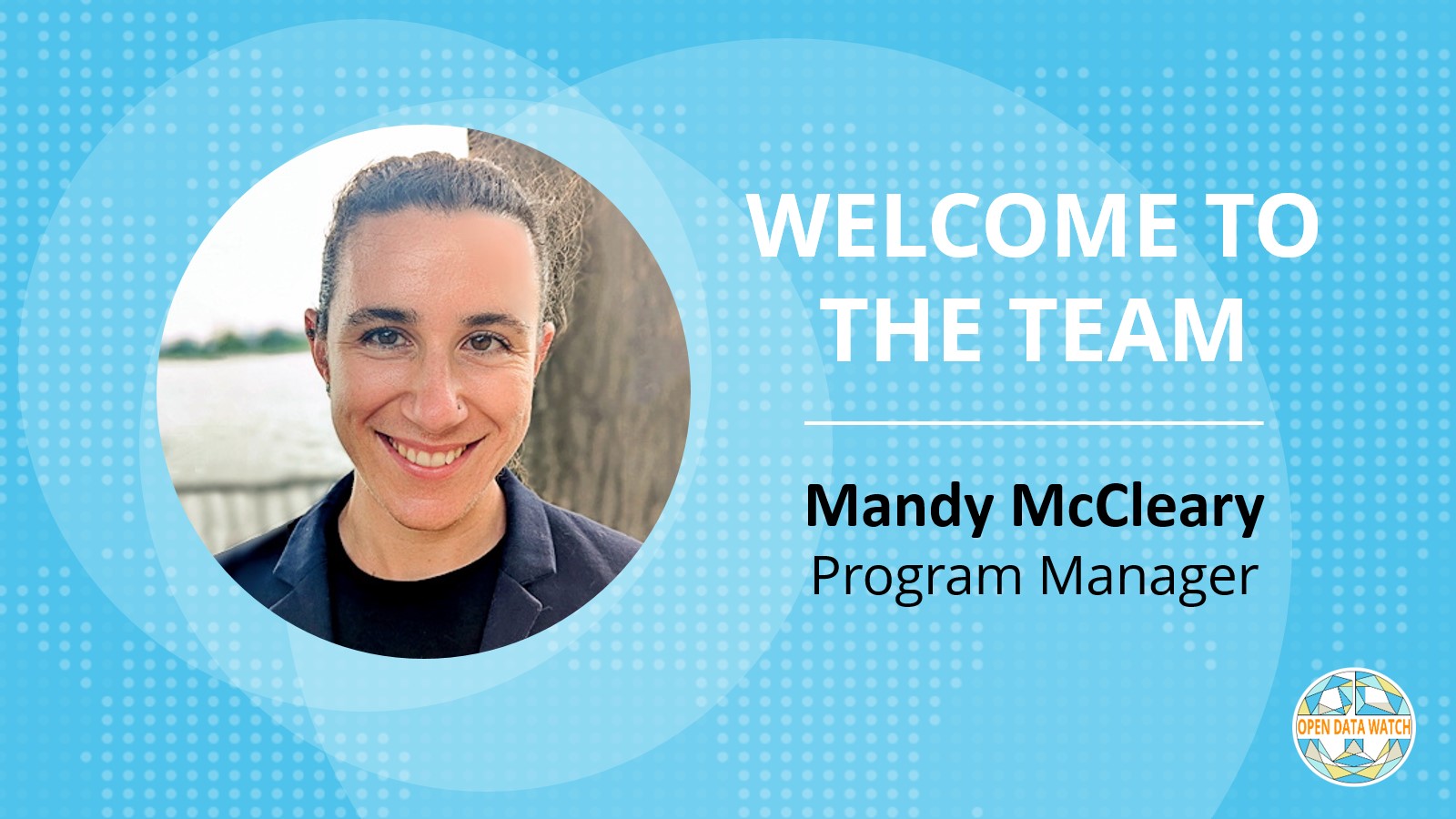
Open Data Watch is delighted to welcome Mandy McCleary as our new Program Manager. With over 10 years of experience in global health economics, applied statistics, and project management, Mandy’s skills and passion for inclusive, evidence-based development make her a valuable addition to the Open Data Watch (ODW) team. To help the ODW community get to know her better, we asked Mandy a few quick questions about her background, interests, and what brought her to this role.
-
Can you tell us a little bit about your background and what drew you to the field of data for development?
I was drawn to the field of data for development after hearing from global relations and global development colleagues about programmatic and systematic inadequacies due to lack of or inadequate use of data. For example, I had one colleague whose organization built a well in Afghanistan for women to collect water from in a convenient location, much closer than their other water sources. However, after a couple of months, the project found that women were not using the well. After consulting with the women, the organization found that women were not comfortable with the path they would have to take to get to the well and that there was not a good space for women to wait and socialize before it was their turn to collect water. With this information in mind, the organization filled in the well they had recently constructed and built a new one in a place recommended by the women. To me, this example was also emblematic of the need on a larger scale to ensure diverse populations are represented in the data for better and cost-effective change to occur.
-
What motivated you to join ODW, and what excites you most about your new role as Program Manager?
I was motivated to join ODW as I really admire the excellent work that ODW does in supporting international and national statistical systems to make data more open and inclusive and, therefore, more useful. I am really excited about the program manager position as it allows me to ensure ODW succeeds in achieving its strategic goals and I also get to support all of ODW’s workstreams – providing policy advice, data support, and monitoring.
-
How do you see the role of open and inclusive data systems in addressing today’s development challenges?
I see open and inclusive data systems as fundamental to addressing today’s development challenges in a way that is less biased, efficient, and effective. For example, several recent health crises including bird flu, monkey pox, and Ebola were effectively managed in large part because there were data which helped governments target prevention messaging for the most at-risk populations and intervene in areas or with groups which had shown higher prevalence rates.
-
Is there a particular ODW project or initiative that you’re especially excited to contribute to? What interests you about it?
I am particularly excited by ODW’s monitoring work, which focuses on helping partners measure progress towards building available and accessible data systems. I am excited by this work because I think tools like ODW’s Open Data Inventory, Gender Data Compass, and Open Climate Data Template helps countries break down complex processes into manageable items using a standardized, global methodology.
-
Do you have a favorite SDG indicator—or one you find especially interesting or important? Why does it stand out to you?
I have always been drawn to SDG indicator 1 (end poverty in all its forms everywhere). SDG indicator 1 has always struck me because it is such a bold idea; poverty feels pervasive. However, since making this a goal, we have been able to dramatically reduce the number of people living below the poverty line ($3 in 2021 PPP dollars) from about 2.2 billion people in 2000 to 840 million in 2025. To me, this represents the power of having a shared goal, making a concerted effort to address poverty globally, and measuring and evaluating poverty and poverty alleviation measures in order to focus on measures which work.
-
And just for fun—what’s one book, podcast, or show you’d recommend to the team?
One podcast that I would recommend to the team is Science Vs which does a deep-dive into contemporary scientific topics and discussions. Some recent episodes include: “Is there really a plastic spoon in our brain” focused on how to measure microplastics and “Dire wolves! They’re back?” which discusses advances in genetics. The podcast does an excellent job of breaking down complex topics, talking to experts, and performing extensive research with tens to hundreds of citations.







